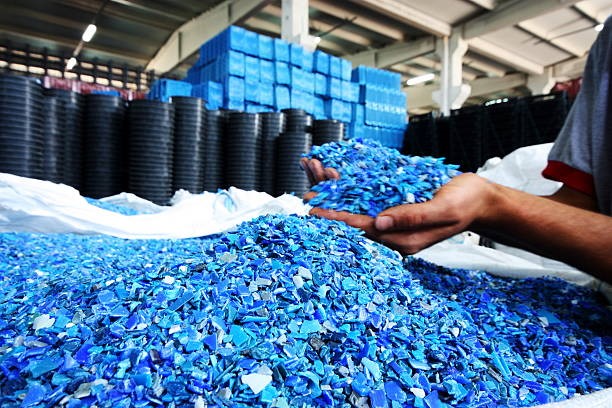
The Recycling Revolution
Mechanical and chemical recycling are two methodologies that aim at the same goal of recycling but diverge significantly in their processes, outcomes, and implications for the future of waste management.
The Shredding Solution: Mechanical Recycling
Mechanical recycling stands as the older, more traditional form of recycling plastics.
Here's how it works:
- Sorting: Different plastic types are meticulously separated to avoid contamination.
- Shredding and Washing: Plastics are crushed into flakes and washed clean.
- Melting and Remolding: The clean flakes are melted and molded into new plastic pellets.
- New Products: These pellets are then used to create new plastic items.
Pros:
- Relatively well-established technology.
- Less energy-intensive than chemical recycling.
- No harsh chemicals involved.
Cons:
- Quality can degrade with each recycle cycle.
- Not suitable for all plastic types, especially mixed waste.
The Breakdown Experts: Chemical Recycling
Chemical recycling, on the other hand, is a more recent innovation that breaks down plastics to their molecular level.
Here’s how it’s done:
- Chemical Breakdown: Plastics are broken down into their basic building blocks using heat, pressure, and sometimes catalysts.
- Reconstruction: These building blocks are then used to create new virgin-quality plastic or other chemicals.
Pros:
- Can handle mixed plastic waste and low-quality plastics.
- Creates high-quality plastic even after multiple cycles.
Cons:
- Requires more energy than mechanical recycling.
- Can involve hazardous chemicals, raising environmental concerns.
- Still a developing technology with higher costs.
The future of sustainable waste management does not hinge on choosing between mechanical and chemical recycling but rather on leveraging both to their fullest potential. The integration of both methods can pave the way for a more comprehensive and efficient recycling infrastructure. Innovations in chemical recycling can reduce its energy requirements, while advancements in sorting and cleaning technologies can enhance the efficiency of mechanical recycling.




